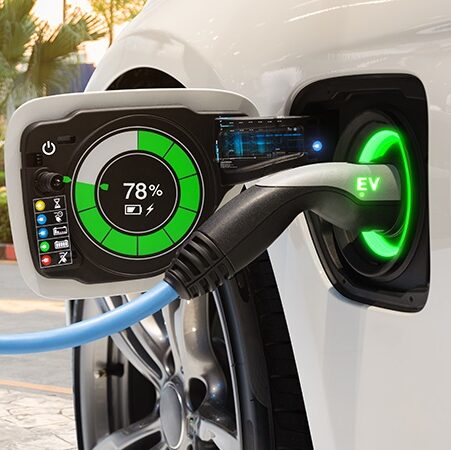
Electric Vehicle Fleet Management
In recent years, the global automotive industry has witnessed a significant shift towards sustainability, with electric vehicles (EVs) emerging as a key solution to reduce carbon emissions and combat climate change.
As businesses and governments worldwide embrace the transition to electric mobility, the management of electric vehicle fleets has become increasingly crucial. This article explores the intricacies of electric vehicle fleet management, highlighting its benefits, challenges, strategies, and future prospects.
Importance of Fleet Management in the Transition to Electric Vehicles

The transition to electric vehicles is not just about replacing traditional combustion engines with electric motors; it also entails efficient management of the entire fleet ecosystem.
Fleet management plays a pivotal role in optimising the performance and sustainability of electric vehicle operations. From monitoring vehicle usage and optimising routes to ensuring timely maintenance and charging, effective fleet management is essential for maximising the benefits of electric mobility.
Advantages of Electric Vehicle Fleet Management
Environmental Benefits
One of the primary advantages of electric vehicle fleet management is its positive impact on the environment. By replacing conventional fossil fuel-powered vehicles with electric ones, fleet operators can significantly reduce carbon emissions and air pollution. This not only helps combat climate change but also improves local air quality, leading to healthier and more sustainable communities.
Cost Savings
In addition to environmental benefits, electric vehicle fleet management offers substantial cost savings over time. While the initial investment in electric vehicles and charging infrastructure may be higher than traditional vehicles, the long-term operational costs are significantly lower. Electric vehicles have lower fuel and maintenance costs, leading to substantial savings on fleet operating expenses.
Enhanced Efficiency
Electric vehicle fleet management also enhances operational efficiency. With advanced telematics systems, fleet managers can monitor vehicle performance in real-time, optimise routes, and schedule maintenance proactively. This proactive approach minimises downtime, increases productivity, and ensures optimal fleet utilisation, leading to greater overall efficiency.
Challenges in Electric Vehicle Fleet Management

Despite its numerous benefits, electric vehicle fleet management also poses several challenges that need to be addressed.
Infrastructure Limitations
One of the primary challenges is the lack of adequate charging infrastructure. While significant progress has been made in expanding charging networks, there are still regions with limited access to charging stations, particularly in rural areas or developing countries. Fleet managers must carefully plan charging infrastructure placement to ensure seamless operations.
Range Anxiety
Another challenge is range anxiety, which refers to the fear of running out of battery charge before reaching the destination. While modern electric vehicles have significantly improved range compared to earlier models, range anxiety remains a concern for fleet operators, particularly those managing long-haul or delivery fleets. Addressing range anxiety requires strategic route planning and investment in fast-charging infrastructure.
Initial Investment Costs
The upfront costs of transitioning to electric vehicles can be a barrier for some fleet operators. While electric vehicles offer long-term cost savings, the initial investment in purchasing electric vehicles and installing charging infrastructure can be substantial. To overcome this challenge, fleet managers may explore financing options, incentives, and subsidies offered by governments and financial institutions.
Strategies for Effective Electric Vehicle Fleet Management
To overcome the challenges and maximise the benefits of electric vehicle fleet management, fleet operators can adopt the following strategies:
Utilisation of Telematics
Telematics systems play a crucial role in electric vehicle fleet management by providing real-time data on vehicle performance, battery status, and driver behaviour. By leveraging telematics data, fleet managers can optimise routes, monitor energy consumption, and identify areas for efficiency improvement.
Optimal Charging Infrastructure Placement
Strategic placement of charging infrastructure is essential for ensuring seamless operations of electric vehicle fleets. Fleet managers should analyse vehicle routes, traffic patterns, and charging demand to identify optimal locations for charging stations. Additionally, investing in fast-charging technology can minimise downtime and enhance fleet productivity.
Driver Training and Engagement
Effective driver training and engagement are key components of successful electric vehicle fleet management. Fleet operators should educate drivers about the features and benefits of electric vehicles, as well as best practices for efficient driving and charging. By actively involving drivers in the transition to electric mobility, fleet managers can improve driver satisfaction and maximise fleet performance.
Future Trends in Electric Vehicle Fleet Management

As technology continues to evolve, the future of electric vehicle fleet management holds several promising trends:
Advancements in Battery Technology
Ongoing research and development in battery technology are expected to lead to significant improvements in energy density, charging speed, and lifespan of electric vehicle batteries. These advancements will enhance the range and performance of electric vehicles, making them more viable for fleet operations.
Integration with Renewable Energy Sources
The integration of electric vehicle fleets with renewable energy sources such as solar and wind power holds immense potential for reducing carbon emissions and dependency on fossil fuels. By harnessing clean energy sources for vehicle charging, fleet operators can further enhance the sustainability of their operations.
Autonomous Fleet Management Systems
The rise of autonomous vehicle technology presents opportunities for revolutionising electric vehicle fleet management. Autonomous fleet management systems can optimise route planning, vehicle dispatching, and charging schedules, leading to greater efficiency and cost savings for fleet operators.
Electric vehicle fleet management is a critical component of the transition to sustainable transportation systems. By leveraging the environmental, economic, and operational benefits of electric vehicles, fleet operators can reduce carbon emissions, lower operating costs, and enhance overall efficiency.
However, addressing challenges such as infrastructure limitations and range anxiety requires strategic planning and investment. With the adoption of advanced technologies and innovative strategies, electric vehicle fleet management has the potential to reshape the future of mobility towards a cleaner, greener, and more sustainable tomorrow.
Knowledge Base
Are electric vehicles really more cost-effective for fleet operations?
Yes, despite higher initial investment costs, electric vehicles offer significant long-term cost savings due to lower fuel and maintenance expenses.
How can fleet managers address range anxiety in electric vehicles?
Fleet managers can address range anxiety through strategic route planning, investment in fast-charging infrastructure, and driver education on efficient driving techniques.
What role does government policy play in promoting electric vehicle fleet management?
Government policies such as incentives, subsidies, and emissions regulations play a crucial role in encouraging fleet operators to transition to electric vehicles and sustainable mobility solutions.
Are there any challenges associated with integrating electric vehicles into existing fleets?
Yes, challenges such as infrastructure limitations, driver training, and initial investment costs may arise when integrating electric vehicles into existing fleets.
What are some key considerations for fleet managers when choosing electric vehicles for their operations?
Fleet managers should consider factors such as vehicle range, charging infrastructure availability, total cost of ownership, and suitability for specific fleet applications when choosing electric vehicles.
If you are running a car rental business, Looking for top-notch Fleet Management services in Australia
Contact us on 1300 832 639 for hassle-free car fleet management Services in Australia! Our experienced team at EXCEED ICT is here to assist you in optimising costs and streamlining processes.
With our award-winning expertise and dedication, we ensure that your fleets are managed efficiently.
Related topics you may like to read:
>> Exceed ICT’s Enterprise Rent A Car Fleet Management To Ensure Business Success
>> Car Fleet Management Solutions to boost Your Vehicle Operations
>> Why is Car fleet management crucial for cost savings in your car rental business?
>> Why is truck fleet management important for your truck rental business?
>> Optimising Vehicle Fleet Management for Efficiency and Cost Savings
Stay connected with EXCEED ICT
Stay connected with EXCEED ICT by joining our social networks (given at footer). Get the latest updates, news, and tips for enterprise device deployment. Follow us on Twitter, Facebook, and LinkedIn for the best enterprise device deployment solutions.
Help us to improve our enterprise by rating us on Google Maps. Your feedback and comments are valuable to us and will be used to make our services even better.


